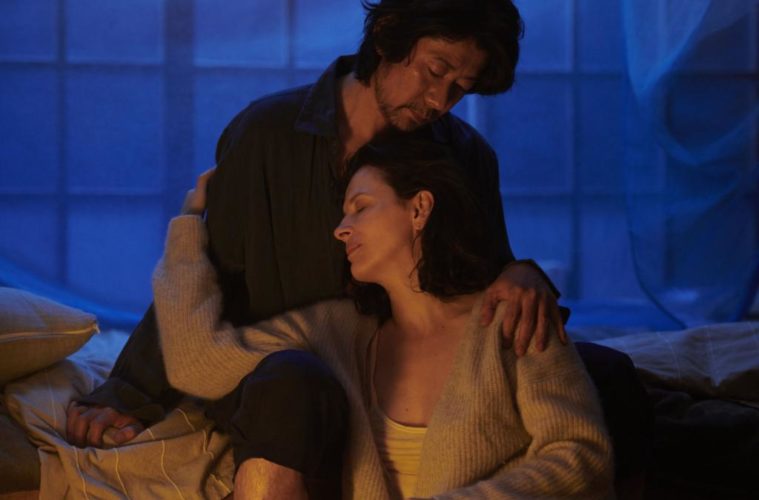A modest meditation on memory and grief turns into loopy pseudo-mythical environmentalism in Naomi Kawase’s Vision, her fourth film in five years. Transplanting Juliette Binoche to the forests of Japan, Vision is full of fine camerawork and lush cinematography, but its failure to connect the spiritual and the intellectual make for a punishingly silly final act. It’s perhaps why Kawase, a Cannes mainstay, could only skip the Croisette this year, launching at Toronto and washing up in competition at San Sebastián.
Kawase is at her best when she soaks up the scenery of her setting, the lush mountainous forests of Nara near Osaka, where shards of light that jut through endless cherry blossom trees positively glow in Arata Dodo’s cinematography. Under the canopy, woodsman Tomo (Kawase regular Masatoshi Nagase), for whom loneliness is a quotidian affliction, fells giant tree trunks, centuries-old plants that hold some mythical link between past and present. He’s there with his plucky, blind mother–played by veteran Japanese actor Mari Natsuki–introduced as something akin to a soothsayer, who portends that something is amiss in the forest as corporate foresters edge further into the woodlands.

Juliette Binoche is unusually subdued as Jeanne, a French writer journeying to Japan to find an “ancient herb growing tradition” (that clunky dialogue will become a fixture). The magic herb in question is “Vision”, whose properties supposedly take away mental anguish, but its leaves only release their “spores” about every 1000 years, like some interplanetary alignment from 2001: A Space Odyssey.
Sounds loopy? Well, Kawase is less inclined for us to concern ourselves with the machinations of plot than with sensuality. This is fine for the first hour of the film, as Tomo and Jeanne strike up an affair amid green pastures that the director’s camera seems to caress.
It’s when Kawase focuses in on the metaphysical elements of the story that she loses grip of her audience. Introduced to Jeanne, we imagine her malaise might be a mental illness or some topical contemporary weltmude. Instead, we learn she’s grieving over a past love affair (I couldn’t help thinking it was a nod to Binoche’s performance in Three Colors Blue) and once we’ve lost that mystery the film loses its way. Binoche’s uncanny ability to tear up on demand gets fair usage here.

“Happiness exists in all of our hearts,” says Tomo in one scene, as if to say that ‘we don’t need anyone, or anything, to be happy,’ a central tenet of Buddhist philosophy and one that makes Vision seem for much of its running time as a more personal film of Kawase’s than we’re used to. But Tomo’s loneliness doesn’t make him happy, and Jeanne’s obsession with the eponymous Vision, and her relief at encountering it, make it a head-spinning task deciphering whether there’s a message to the movie.
Kawase leans too heavily on dialogue too, some of which is excruciating. (“Love is like the waves. It never stops.”) The obvious stumbling blocks of watching French and Japanese actors communicating in English abound–Tomo’s English inexplicably improves as the plot demands it. Jeanne says in one of the film’s more spiritual episodes: “Sometimes because we have language we can’t understand each other.” Why didn’t the film follow that advice?
Beautiful framing, however, mean there’s enough in Vision to be embraced by admirers of the relative workaholic Kawase, whose flights of fancy into verdant nature are overwhelmingly lovely.
Vision screened at the San Sebastian Film Festival.

